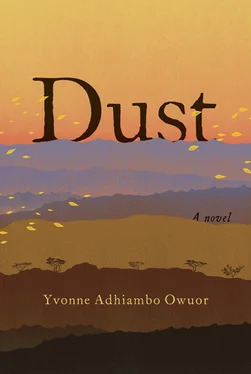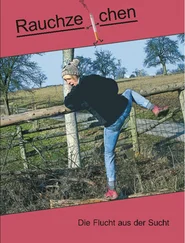A twist deforms Ajany’s full lips. Here . The evidence. They are descendants of a lineage of Living Dead. Breathing in, she shifts her body to stare at a beige coffin, habitat of the new and unquiet dead on a day when distorted election results will set a bucolic country afire. The outside world is drenched with human noises of accusations and counteraccusations, election rigging, and the miracle of mathematical votes that multiply and divide themselves. But within their world, in a self-contained, haunted compound with its lone, misshapen grevillea tree, upon which a purple-blue bird tweets, and where death prowls at half past three, Ajany bends forward to listen to and for her brother, Odidi, whose story-words had created vessels that always carried her into safe border.
Hours ago: Inside a morgue with its forgotten dead, the unprepared dead, and the happy dead, a chill had turned all their hands a pale yellow, same shade as Moses Odidi Oganda’s long, thick fingers. They had rummaged among the discarded dead in order to find and retrieve their own.
Post-autopsy, after a smoke-stained attendant had stitched him together again, father and sister had dressed Odidi up: olive khaki suit, black socks, and tan leather shoes, purchases from a half-closed, guarded, nearby mall whose managers balanced the fear of waiting for hell’s inevitable descent with the thirst to milk the last flow of money from panicking citizens. By three-thirty, documents signed, all protocol adjusted and therefore observed, Moses Ebewesit Odidi Oganda was officially dead.
Arabel Ajany Oganda stands under gray skies where shadows dart. A pair of bateleur eagles — prophet birds, like marabou storks — survey the ground for cooling bodies. Savanna birds encircling a city that is dashing toward an abyss, while here four men advance toward a white hearse with tattered red ribbons fluttering from its front windows.
Ajany breathes into her hands and shivers. Blisters and bruises burst in hidden places within, while her outside eyes glue themselves to Baba’s glowing brown shoes that underline his efficient out-of-place-ness. Bile in throat burns, dissolving her screaming. I hate … What? She swallows, focuses on Nyipir’s fixation with the wooden coffin, his guttural breathing out of a lullaby. Oombe, Oombe / Nyathi maywak ondiek chame .… She listens for Odidi. Listens for words that return life into a still body she has seen and touched. Odi, wake up , she begs with her breathing.
Nyipir Oganda lifts his hand. Six other eyes have been waiting for his sign. Three men: A mortuary attendant, sinewy and lame, one of his incisors elongated and peeping out of his mouth as if from another existence; his eyes ooze a brown substance and madness. Dr. Mda, police pathologist, a short man of shiny baldness, whose cherubic, pockmarked face carries a too-large mustache set off by big ears and eyes that dart hither and thither; his beige trousers are a size too small. Ali Dida Hada as Ajany had never seen him before — in police uniform, adorned with the insignia of an assistant commissioner of police, carrying a black baton under his arm. An emaciated line, mirroring his strip of mustache, serves as a smile on his mouth. When she was eight years old and the then newly arrived Ali Dida Hada had been pretending to be an itinerant herdsman for her family, she had spied him mesmerizing the family camels with songs sung in a falsetto. She had told Odidi: “He has gold mirrors inside his eyes.”
Nyipir signals. The men hoist up the coffin.
It is a short walk to the white hearse.
They fit the box into the runners.
Bruised faces belie outward harmony.
Earlier, there had been a tussle next to the silver autopsy bay.
Nyipir had said, “I’ll take my son home now.”
Dr. Mda had screeched with moral valor, “A Mporis case. The ca nda ver brongs to the state.”
His tone had caused Nyipir to grab the rotund man’s neck and squeeze as a long python might. Supervising Officer Ali Dida Hada had watched, face placid, head tilted.
“ Heup me,” Mda choked.
Ali Dida Hada had been nonchalant. “Me, I say there’s no case.”
Dr. Mda bleated, “You mb rought me here.”
“ Eh! To reveal through science how this cannot be a police case.”
“Oh!” croaked Mda.
Nyipir had released Mda’s neck.
A practical man, Dr. Mda had looked to the mechanics of death for an answer that would not compromise his only partially tainted soul: exsanguinations caused by pneumothorax and heart failure , a footnote on a death certificate so that Moses Odidi Oganda could go home.
Distant sirens.
In the compound, near the grevillea and its cheerful bird, life collapses into the squeak of the opening door of a hearse, the view of a coffin from a rear window, the deep gaze of other strangers, and more shuffling footsteps. No flowers. No cortège — a brother’s leave-taking of a sour morgue where other corpses wait for their living. She remembers that the hearse driver’s name is Leonard. His thin face bones cast fragile shadows. He has wrapped a white handkerchief around his coat’s upper arm and assumed a funereal look. It suits him. Earlier, Leonard had brought Ajany and Nyipir from the airport in a bright-yellow taxi. It is gone now.
Ajany scrubs her face and stares at two sides of the world. Before-now was four hours and forty-three minutes ago. Rained-upon earth mingling with smoke and age and dust and sun and cows on a father’s coat, and her head tucked into its folds in welcome at the airport, the scent of coming home from all her Far Aways. But-now is icy eternity, thick with the terror of the voicelessness of her big brother. But-now is made of the murmured anguish of other strangers — a ragged quartet oozing old-clothes smell. Wet eyes, life-hardened faces, as unadorned as the ill-nailed empty coffin on the cement. Panel-beaten features. The woman’s look is a hemorrhage. Wife? Sister? Daughter? Ajany looks away from these other citizens of the sea of absence.
A lethargic white-striped lizard pauses between tiny yellow flowers before lumbering across Ajany’s blue-painted toes, which peep out of absurd dark-blue Brazilian high heels. A howling Where are you? Resonance of fear, which pounds its hooves, galloping through her soul. Madness neighs. Her fingers press long, painted nails into palms. These bend and break. Groping darkness behind her eyes. Exhaling slowly so as not to disrupt stillness, Ajany breathes, but it is too late. Now is when forgotten ghosts return to claim beginnings. She could paint these arrivals, but for now she is gnawed by the ghastly bawling of a baby that only she could ever hear. Ajany calls for him, her story maker. Odidi . He knew water songs that soothed. He always knew what to do.
Outside sounds:
Étude of squealing tires.
Bird chirp.
Machine-gun opening sequence.
A scream.
Fragments of a song from some unseen citizen’s room.
Franklin Boukaka’s plaintive summons— Aye Africa … kokata koni pasi, soki na kati koteka pasi —and for a whole minute it overwhelms the frenzied crescendo screams of Haki yetu , “Our rights.”
It has begun.
Inside Ajany’s heart, a sobbing begins. Farther up the road, a pre-pubescent girl with a tank top, belly ring, and red sneakers hurries off somewhere, clutching her Nakumatt white-and-blue plastic bags. A big hand lands on Ajany’s shoulder. She jumps.
Her father croaks, “Wadhi.” Let’s go.
Nyipir and Ajany Oganda approach the hearse. Then they both stop in front of the car door. The veins on Nyipir’s neck throb, and sweat pebbles crown his head.
Читать дальше











